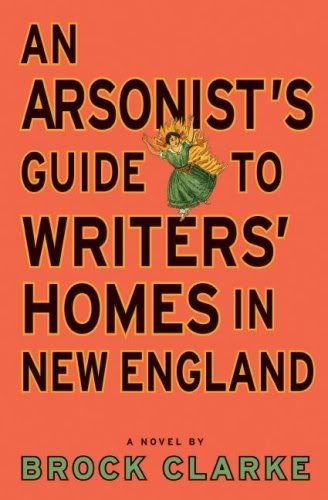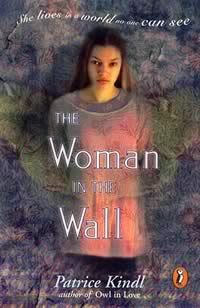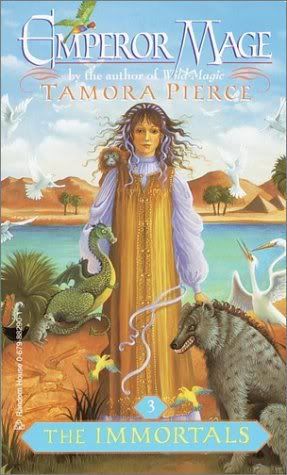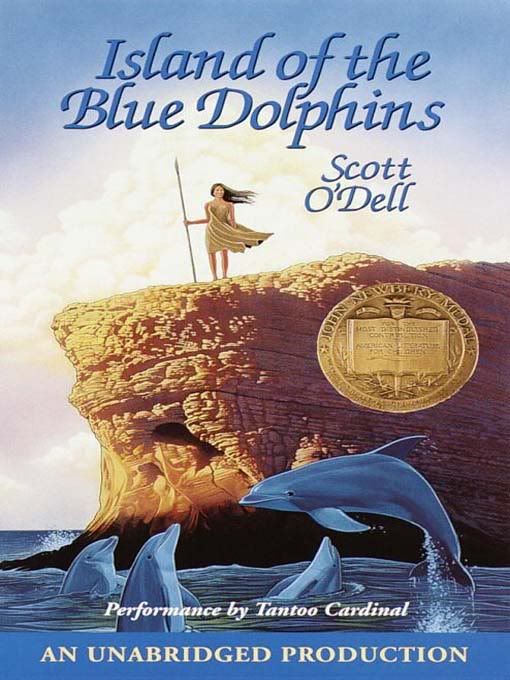So, I was thinking today (as I sat in the Buffalo and Erie County Public Library trying to look unapproachable) that there are probably very few book topics left out there that haven't been used. That in itself is depressing enough, since I would guess that "very few" is more like "none." But what's more depressing is that there are so few topics out there
anyway, especially for fiction.
Leaving aside the greats and the classics, let's go with mass-appeal fiction. There are a few categories I can come up with off the top of my head:
Historical. Divided into:
a)
thrillers in which a person overcomes the limits set by their time period and solves some mystery full of intrigue and murder. If the person is male, this is seen as unremarkable, though eccentric. If the person is female, every other character will remark on how it's unseemly.
b)
romances. More on this later. Often these will be half history, half fantasy. See below.
c)
pseudo-biographical, meaning the author was too lazy or too entrenched in the creative process to write an actual biography.
Romance. Oh boy. These are the
worst. There are:
a)
pseudo-pornographic. These exist solely to use raunchy metaphors and to embarrass women when they (the books, not the women) fall out of one's purse in public. Identified by their oddly similar and yet completely lifeless characters. Bonus points for checkered pasts, including run-ins with the law and previous sexual abuse, the damage from which is undone by a mind-blowing orgasm around page 20.
b)
artsy-fartsy. These pretend to be literature (judging by the covers), but when you read them, it's the same old thing. Fewer metaphors and less embarrassing, but no less predictable.
c)
Christian. More on this later. MUCH less sex. That is to say none at all beyond longing glances and passionate hand brushes.
Sci-fi/Fantasy. I am smashing these two together despite my better judgment, only because they are shelved together. These include:
a)
romances in all categories, except generally Christian. Usually these will take place in either a castle in a made-up kingdom, or in some solar system where the planets are warring and there's a lot of death and zipping around in spaceships. Sometimes there are people who can turn into/talk with animals. That's always a plus.
b)
"concept" novels. As in, wouldn't it be interesting if....fill in the blank. Like what if
Homo Erectus didn't become extinct/the South won the war. Usually the idea is okay, the story is not.
c)
pseudo-historical. Often these involve Arthur and magic, but sometimes there are cave people.
d)
"prophetical." Generally preaching about what could happen if...fill in the blank. We don't stop global warming, we micro-manage the population, etc. Sometimes these are Christian (
Left Behind), other times they are not (
Brave New World, etc).
Horror. Often found in the mystery section, but also can be found in fantasy, sci-fi, or sometimes maybe romance. These almost all involve monsters, ghosts, psychopaths or other things that go bump in the night.
"Redemption" novels. Someone bad turns good. Usually this someone also overcomes an obstacle of some sort that was holding them back. Can be found in all other categories.
"Anti-redemption" novels. Someone bad tries to turn good, fails. Or dies while attempting to surmount an obstacle, which usually makes it a redemption novel, but not always. Can be found in all other categories.
Mystery. Someone solves something, often while in the midst of a historical/made-up world, romantic entanglement, or personal conversion (religious or otherwise).
Christian. Oh boy. Here's the run-down:
a)
Historical. These are either in a time or place where Christianity is oppressed, or where everyone is Christian except the bitter man/woman/war vet/cowboy/spinster school teacher. Eventually he/she will find the Lord and all will be well, the kingdom saved, war ended, sheep sheared, etc.
b)
Romance. Same as above, sometimes historical, but will always end with the bitter atheist finding love and the Lord at the same time. Usually there are children.
c)
Sci-fi/Fantasy. With the exception of C.S. Lewis, these combine the worst of the two genres. I've never really run into a stereotypical sci-fi novel with life on other planets and such, but I can tell you that usually there are thrillers with odd breezes and evil spiritual forces that try to bring down the believer. Someone converts.
d)
Horror. Again, from what I've seen it's usually more thriller-y than anything else, but I'm willing to bet there's Christian horror out there that I have missed. No doubt some of Satan's minions come stalk the earth, only to be overcome by a kindly priest and a couple who has brought each other to the Lord and fallen in love in the process of conquering evil. Sensing a theme?
My battery's about to die. But my point is, there's nothing left to write. Nothing. I'm willing to bet that every book, with the exception of the greats (eh, not even all of them), fits into these categories. Good luck finding one -- or writing one -- that isn't ;)
 "She went to see my grandma...my other grandma," he said. "I have another grandma?" How to describe the way Christian said this? How to describe a five-year-old boy who finds out that he has two sets of grandparents and not just one? How to describe a boy who discovers that his father has for years and years lied about his own parents' being dead? And how to describe a father who doesn't think that, in killing off his parents, he has killed his children's grandparents in the bargain?
"She went to see my grandma...my other grandma," he said. "I have another grandma?" How to describe the way Christian said this? How to describe a five-year-old boy who finds out that he has two sets of grandparents and not just one? How to describe a boy who discovers that his father has for years and years lied about his own parents' being dead? And how to describe a father who doesn't think that, in killing off his parents, he has killed his children's grandparents in the bargain?






